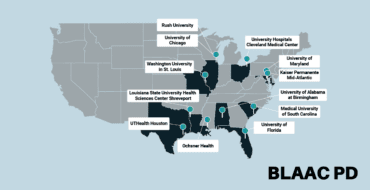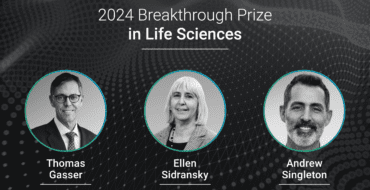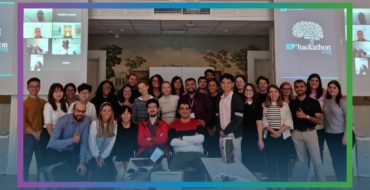Open Science Opens Doors

- Open science reveals the value of all stakeholders
- Open science provides the best return on resource investment
- Open science facilitates big discoveries
The fundamental promise of scientific research is to make the unknown known. Historically, research has mostly been conducted by scientists working alone or in small teams to closely study a specific question. This archetype is so pervasive that even cartoonists conjure a single person, staring intently into a microscope. This model illustrates how many people think about science: propose a question, study it closely, then share what you find. The metaphorical microscope — one set of eyes focused intently on a sliver of the whole with omission of all other stimuli — is part of the problem.
While scientific discovery still relies on careful study, one lab focused on one area at a time is a resource bottleneck. Too frequently, limited access to data and tools slows discovery and leads to costly, inefficient overlap in research. The cost to researchers—and patients—is especially high, as the data and conclusions may take years to generate and publish, only to be eclipsed by a slightly different project.
The consequences of such a model are easy to see. Generation of this data often becomes competitive rather than collaborative, creating roadblocks to discovery. The challenges of generating and curating the data set often rival the scientific research performed, and the contributions of individual researchers may be diminished in the process. This closed process invariably leads to fractured and siloed data sets, which cost more to generate and are harder to analyze and compare. Worse, key discoveries may be missed when isolated data sets cannot be effectively compared.
The alternative to this model is frequently described as “open science.” One path is to build shared research data platforms and develop ways for many scientists to work on it simultaneously. Research consortia such as the ENCODE Project, GTEx, and others have increasingly demonstrated the value of collaborative data generation and have proven enduring successes in enabling high-impact research. Researchers with different interests and expertise use the data independently or collaboratively based on their needs. From a resource-generation perspective, this model allows the same resources (funding, time, effort) to create larger and more valuable data sets.
Sharing research plans, early results, and challenges faced also elevates the contributions of individuals in a project, allowing researchers to attribute and address key questions that arise. This is especially important for early-career researchers and trainees, who gain exposure and access to opportunities under an open science model. This model also promotes equitable collaborations, as individuals can contribute to ongoing work with the knowledge that their efforts will be acknowledged in the process. This focus on sharing work in progress also encourages best practices in developing shared tools and resources to support work and increases the number of researchers equipped to navigate and utilize existing data. Ultimately, just as GP2 is committed to ensuring equitable benefit from the diverse cohorts that are included, it’s commitment to open science ensures that the resources and opportunities support the research – and the researchers – that join this groundbreaking effort.
[1] ENCODE Project Consortium. An integrated encyclopedia of DNA elements in the human genome. Nature. 2012;489(7414):57-74. doi:10.1038/nature11247



